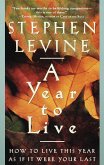It has been said that fathers are a biological necessity but a social accident. Fifteen years ago, when Ross Parke first wrote about fathers for the Developing Child series, American culture seemed to adhere strongly to the stereotype of dad the breadwinner, pacing outside the delivery room and peeking through the nursery window, and mom the homemaker, warming bottles and changing diapers. Simple - in fact, a bit too simple. Since then the conventional image of the uninvolved father has given way to a new stereotype: the father who takes an active part in rearing his children. Yet is this new portrayal any more accurate than the previous one? The dramatic changes in society over the past several decades have reconfigured the nuclear family and redefined the role of fathers. More women now work outside the home; fewer families can depend on relatives for help with childcare; more divorced fathers assume or share custody of their children. Fathers have become partners in parenthood, wielding a more direct influence on their children's development. In this new book, Parke demonstrates that men enact their fatherhood in a variety of ways in response to their particular social and cultural circumstances. And while it is becoming clear that fathers play an important role in their children's lives, it is also becoming clear that fathering is good for men.
Hinweis: Dieser Artikel kann nur an eine deutsche Lieferadresse ausgeliefert werden.
Hinweis: Dieser Artikel kann nur an eine deutsche Lieferadresse ausgeliefert werden.








